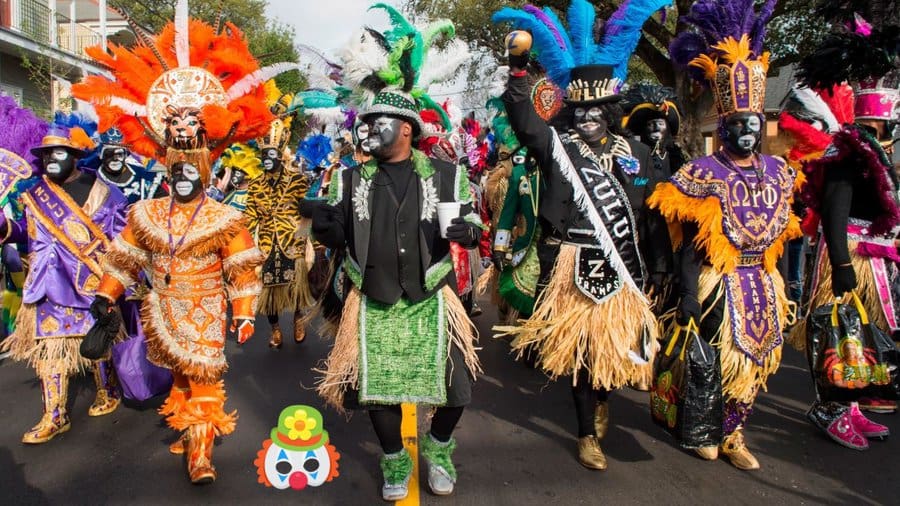A cultural parade in New Orleans has gone viral for all the wrong reasons – and Mzansi is not amused.
Every year in New Orleans, as part of the vibrant Mardi Gras celebrations, a colourful group known as the Krewe of Zulu takes to the streets in grass skirts, afro wigs, and – yes – full-blown blackface. Sounds like satire? Maybe. Cultural tribute? Possibly. Offensive? Well, that’s where South Africans have something to say.
Locals in Mzansi were left somewhere between horrified and speechless after stumbling upon clips of the Zulu parade online. Many couldn’t believe their eyes as American participants gleefully smeared on the shoe polish and threw coconuts into crowds, claiming it all in the name of tradition.
“Are these supposed to be Zulu people?!” gasped one South African on X. “Americans are so disrespectful. OMG.”
To which some Americans – with the subtlety of a vuvuzela at a book club – clapped back: “It’s blackface, but it’s Black people doing it. Y’all South Africans [don’t know what you’re talking about].”
Charming.
Found out there’s a Zulu parade in New Orleans… Yeaaaah I’m trying to wrap my head around this 😭 pic.twitter.com/zMvGCI6kga
— $HALA🇵🇸🇿🇦 (@Shalatheunicorn) April 7, 2025
But dig a little deeper, and the story becomes more complicated. The Zulu parade was born in 1909 out of resistance – a response by working-class black New Orleanians to the all-white Carnival krewes of the time. By exaggerating racist imagery, they turned it into protest. “A safe way to mock the mockers,” historian Lawrence Powell explained.
Historians argue that this was a way to reclaim space, poke fun at the pretentiousness of white elites, and assert black presence in public celebrations. So yes, the parade has deep roots in black American resistance and survival.
But here’s where it all goes a bit sideways: the parade’s modern look leans a little too hard on stereotypes that South Africans feel misrepresent actual Zulu culture.
The result? A full-blown culture clash between two groups who share a connection to the continent but not always context. One X user even joked (or did they?) that the Zulu Royal Family should sue New Orleans for defamation.
Some American users even turned the tables, pointing fingers at South Africa’s own Kaapse Klopse (Cape Minstrels) as an example of a potentially problematic tradition – a deflection that didn’t go down too well on our side of the internet. The Cape Minstrels parade, held annually in Cape Town, dates back to the 19th century and was originally a form of cultural resistance by formerly enslaved people. It features colourful costumes, painted faces, and brass band music.
While beloved by many, the festival has occasionally drawn criticism for its minstrel show associations. But as sustainability platform Twyg reports, the Cape minstrels have long avoided mimicking racist caricatures of black people. Instead, their elaborate makeup is used to mask performers’ identities, not mock them.
At the heart of it all is a very modern debate: how do we honour history without insulting the present? And is it possible to dress up like a Zulu warrior without offending millions of actual Zulus?
Emma is a freshly graduated Journalist from Stellenbosch University, who also holds an Honours in history. She joined the explain team, eager to provide thorough and truthful information and connect with her generation.




